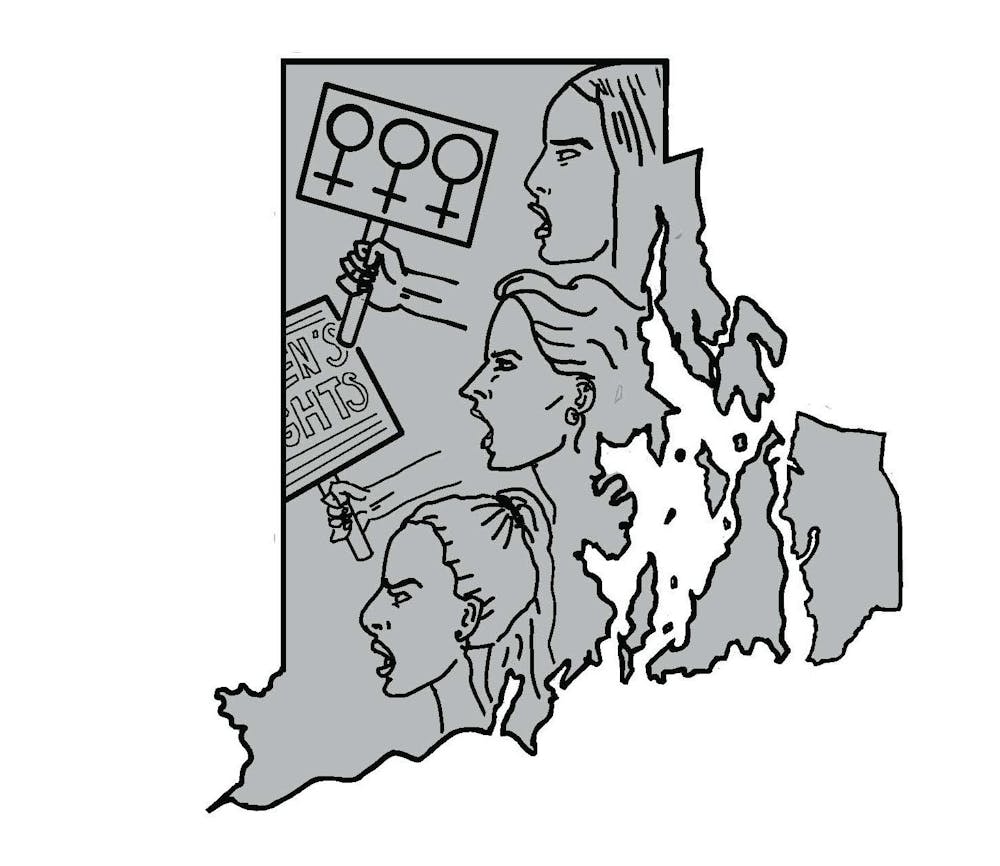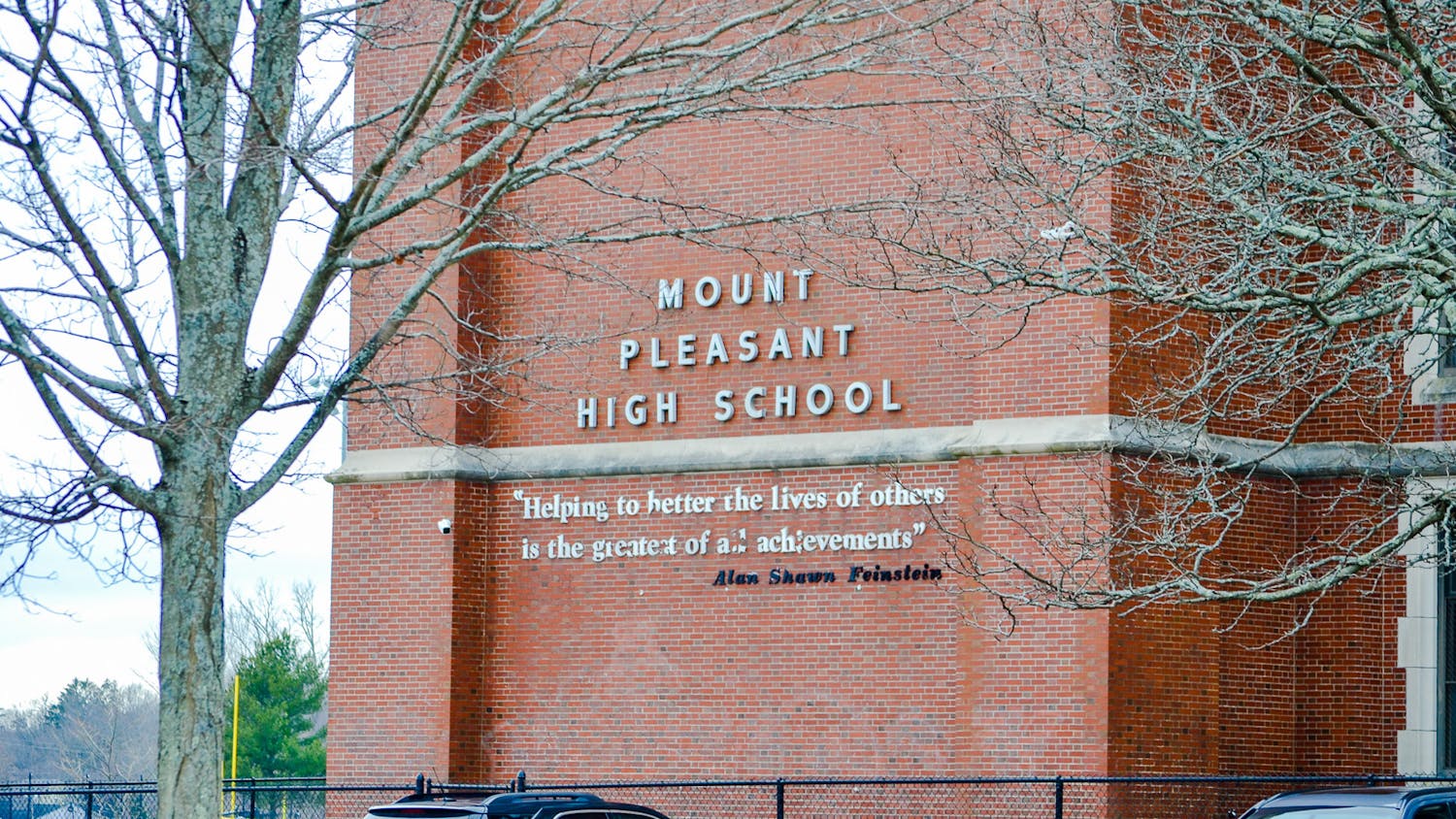During Women’s History Month, several Rhode Island nonprofits are targeting their efforts toward various issues that disproportionately impact women — including representation in leadership, discrimination in the workplace and childcare.
The Herald spoke with three organizations about the different ways they promote women’s rights.
Women’s Fund of Rhode Island
Kelly Nevins, the CEO of Women’s Fund RI, said the organization’s mission is to “invest in women and girls through research, advocacy, grant-making and strategic partnerships designed to achieve gender equity through systemic change.”
The organization is working on a fundraising campaign that supports a new program for women leaders in government. Nevins said that the group works to provide hard skills for newly elected leaders such as negotiation strategies, greater comprehension for reading budgets and understanding Robert’s Rules of Order, a guide of norms for leadership.
“Women often feel (that) because they're the only female voice in the room…they're getting a lot of pushback from the folks that have been in the room for a long time,” said Nevins. “We want to provide a coaching framework behind them, so that they feel stronger as they start to build their power in these new spaces.”
Another aspect of their work is helping these leaders avoid burnout. “It can be really frustrating and lonely to be the only or one of the few women at the table, and we want to be sure that they stick around,” Nevins said.
The nonprofit also runs various programs to promote gender equity in the workplace, according to Nevins. The wage gap and wealth gap partially stem from women not knowing when or how to negotiate their salaries and for certain useful benefits, she said.
WFRI helped pass the Fair Pay Act in Rhode Island. The law requires employers, when asked, to provide the wage range to applicants for positions in which they are being considered. “Having that information for a woman candidate can be crucial to helping them negotiate for a competitive salary,” Nevins said.
While the pandemic did not really impact the group’s programming, it underscored where inequalities existed in the community. “Women were predominantly impacted by the economic fallout of COVID because many of them had to stay home and care for their children and homeschool,” Nevins said. Women also often work in frontline jobs like retail and hospitality, which suffered during the pandemic, she added.
Nevins emphasized that increasing access to childcare is essential for women to take on leadership roles in the workplace. “If we do not fix the childcare infrastructure issue, the women who left the workforce because they lost their childcare options (aren’t) going to come back,” she said.
“It's a business problem. It's not a parent's problem,” Nevins added.
WFRI is currently working on their 2021-22 Women’s Policy institute which trains women to be grassroots leaders for advocacy. The fund will be accepting 2022-23 applicants in spring.
Alliance of Rhode Island Southeast Asians for Education
The Alliance of Rhode Island Southeast Asians for Education was “founded to elevate the educational needs of Southeast Asian students and families” by working through a Black liberation lens, said Chanda Womack, the founding executive director of ARISE. “We believe that our liberation is tied to Black liberation and (recognize) how Black bodies and Black lives have been historically treated and continued to be treated or how they interface with institutions of oppression.”
For Women’s History Month, ARISE plans to honor women who are not always celebrated. “We really want to honor the grandmothers, the mothers, the sisters. The women who are doing incredible work that we don't always see, like the labor that comes with being a mom at the intersection of being an organizer or community leader,” Womack said.
The Herald spoke to three women who had gone through ARISE youth programming and are now active in leading and shaping the organization.
ARISE uses leadership development to promote justice in youth education. Niamiah Jefferson, the lead organizer for the high school cohort, said ARISE is a family where growth is welcomed.
ARISE is “a safe space for young people to come together across the nation to get to know each other and learn,” said Nancy Xiong, who leads the middle school cohort at ARISE.
Xiong explained that ARISE’s programming has taught her “how toxic masculinity and patriarchy play a role, not only in my culture, but in America and the structures and systems of America.” She added that teaching young people about masculinity and patriarchy helps dismantle biased belief systems.
Symone Burrell, a program organizer at ARISE, noted that being in this kind of work has taught her the importance of taking care of herself. She explained that women are constantly told that they must care for other people, and she believes that it takes strength to acknowledge that sometimes you are unable to do that.
Burrell said that people “underestimate you even more because you're a woman of color or a Black woman.”
“Think of the comment: ‘you're so well spoken.’ What did you expect?” Burrell said. “‘Especially as a youth.’ What did you expect?” She highlighted how ARISE gives youth in the community the tools to stand up for themselves through understanding their identity and how it fits into the world around them.
United Way of Rhode Island: Women United
Women United is an affinity group at the national and international level within United Way RI, according to Amanda Heinsen, director of donor relations. The group focuses on childhood literacy and learning through philanthropy.
Women United’s programming gives parents the ability to better provide for their families and have more freedom for themselves through childcare and education services, Heinsen said.
The group also works on after-school and summer programs. “Parents need to know that their kids have a safe place to go after school and that they can afford it,” she said. “There's a huge barrier (to these programs) … last time we surveyed, there's over 37,000 Rhode Island kids who do not have any access to after school programs.”
Heinsen said that “literacy rates for children in Rhode Island are staggering. Only about 35% of Rhode Island kids in third grade read at (that) grade level.” She added that the “third grade literacy rate is very important because up until third grade children are learning how to read, but after third grade, they're reading in order to learn.”
“It's important that we have an infrastructure in place where kids are taken care of so that parents — especially women — can continue to work if that's what they choose to do,” Heinsen said.

Elysée is a writer for metro, a producer for the Bruno Brief podcast and an aspiring card game creator. She is a second-year student studying International and Public Affairs on the Policy and Governance Track.





